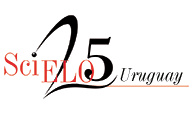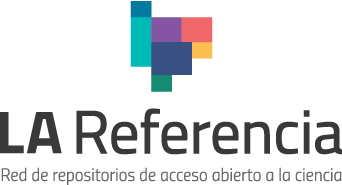Reflexiones ecocríticas sobre ficción escrita por el premio Nobel Mario Vargas Llosa
DOI:
https://doi.org/10.25185/13.7Palabras clave:
Ecocrítica, El hablador, El sueño del celta, Literatura peruana, Mario Vargas Llosa, Medio ambienteResumen
Este artículo examina tendencias antropocéntricas y ecocéntricas en dos novelas escritas por Mario Vargas Llosa, El hablador y El sueño del celta, para identificar el valor de esas obras en términos ecocríticos. Proporciono este análisis en el contexto de un diálogo académico reciente que observa una relación aparentemente contradictoria entre la presentación de abusos en contra de pueblos amazónicos y de su entorno natural, y la representación de protagonistas occidentalizados como sus salvadores en la narrativa escrita por Vargas Llosa. Este ensayo ofrece una solución a esta paradoja y a otras aparentes contradicciones en la ficción vargasllosiana y postula que a pesar de que el discurso literario antropocéntrico sobre el medio ambiente ha declinado a lo largo de la última parte del siglo XX, en parte, debido al auge del movimiento ambientalista, este tipo de discurso ha cambiado en la obra del premio Nobel, rechazando concepciones erróneas del mundo natural de principios del siglo XX pero aferrándose a creencias neoliberales tecnocéntricas.
Descargas
Citas
Beattie, Mollie. “Environmentalism.” In The Book of Green Quotations, edited by James Daley, 43-54. New York: Dover Publications, 2009.
Booker, Keith. Vargas Llosa Among the Postmodernists. Gainesville: University Press of Florida, 1994.
Buell, Lawrence. The Environmental Imagination: Thoreau, Nature Writing, and the Formation of American Culture. Cambridge: Harvard University Press, 1995. DOI: https://doi.org/10.2307/j.ctv1nzfgsv
Buell, Lawrence. The Future of Environmental Criticism: Environmental Crisis and Literary Imagination. Oxford: Blackwell, 2005.
Castro-Klarén, Sara. “Mario Vargas Llosa: A Retrospective Look.” MLN 131, nº 2 (2016): 536-550. DOI: https://doi.org/10.1353/mln.2016.0021
Devall, Bill, and George Sessions. Deep Ecology: Living as if Nature Mattered. Salt Lake City: Gibbs M. Smith, 1985.
Foucault, Michel. The Order of Things. New York: Vintage Books, 1970.
Fox, Nicholas. Against the Machine: The Hidden Luddite Tradition in Literature, Art, and Individual Lives. Washington, DC: Island Press, 2002.
Hassan, Ihab. “Toward a Concept of Postmodernism.” In A Postmodern Reader, edited by Linda Hutcheon and Joseph Natoli, 273-286. Albany: State University of New York Press, 1993.
Hutcheon, Linda. “Historiographic Metafiction: Parody and the Intertextuality of
History.” In Intertextuality and Contemporary American Fiction, edited by
Patrick O'Donnell and Robert Con Davis, 3-32. Baltimore: Johns Hopkins University Press, 1989.
Hutcheon, Linda. The Politics of Postmodernism. New York: Routledge, 1989.
Kokotovic, Misha. “Mario Vargas Llosa Writes Of(f) the Native: Modernity and Cultural Heterogeneity in Peru.” Revista Canadiense de Estudios Hispánicos 25, nº 3
(2001): 445-467.
McGuire, John W. “The Postmodern Turn in Vargas Llosa: Historia de Mayta, El hablador, Lituma en los Andes.” Doctoral dissertation, University of California, 2000.
Oviedo, José M. Mario Vargas Llosa: la invención de una realidad. Seix Barral, 1982.
Policsek, Cecilia. “El forjamiento de ‘lo latinoamericano’ en moldes editoriales: sobre el caso rumano en el período 2004–2015.” Neophilologus 103 (2019): 83-97. DOI: https://doi.org/10.1007/s11061-018-9580-x
Prado, Benjamín. “El nuevo ocho mil de Vargas Llosa.” Cuadernos hispanoamericanos 725 (2010): 5-8.
Rogers, Charlotte. “Mario Vargas Llosa and the novela de la selva.” Bulletin of Spanish Studies 93, nº 6 (2016): 1043-1060. DOI: https://doi.org/10.1080/14753820.2016.1176299
Sá, Lúcia. “Perverse Tribute: Mario Vargas Llosa’s El hablador and its Machiguenga
Sources.” Journal of Iberian and Latin American Studies 4, nº 2 (1998): 145-164. DOI: https://doi.org/10.1080/13507499808569476
Saramago, Victoria. Fictional Environments, Volume 37: mimesis, deforestation, and development in Lain America, Northwestern UP, 2021. DOI: https://doi.org/10.2307/j.ctv18phht8
Sommer, Doris. “About-Face: The Talker Turns.” boundary 2 23, nº 1 (1996): 91-133. DOI: https://doi.org/10.2307/303578
Urroz, Eloy. “Karl Popper y Mario Vargas Llosa: ¿igualidad o libertad?” Revista de la Universidad de México 88 (2011): 31-40.
Vargas Llosa, Mario. “Breve discurso sobre la cultura.” Letras Libres 139 (2010): 48-55.
Vargas Llosa, Mario. The Dream of the Celt. Translated by Edith Grossman. New York: Farrar, Straus and Giroux, 2012.
Vargas Llosa, Mario. The Storyteller. Translated by Helen Lane. New York: Penguin Books, 1989.
Vallier, Kevin, “Neoliberalism.” In The Stanford Encyclopedia of Philosophy, edited by Edward N. Zalta, Summer 2021, https://plato.stanford.edu/archives/sum2021/entries/neoliberalism/.
Volek, Emil. “El hablador de Vargas Llosa. Del realismo mágico a la postmodernidad.” Cuadernos hispanoamericanos 509 (1992): 95-102.
Walford, Lynn M. A Matter of Life and Death: José María Arguedas, Mario Vargas Llosa, and the Postmodern Condition. Doctoral dissertation, Louisiana State University, 2000.
Williams, Raymond L. “Los niveles de la realidad, la función de lo racional y los demonios: El hablador y Lituma en los Andes.” Explicación de textos literarios 25 (1996-1997): 141-54.
Williams, Raymond L. The Postmodern Novel in Latin America: Politics, Culture, and the Crisis of Truth. New York: St. Martin's Press, 1996.
Williams, Raymond L. The Twentieth-Century Spanish American Novel. Austin: University of Texas Press, 2003.
Wiseman, David P. “Mario Vargas Llosa and the Politics of Literature.” Doctoral dissertation, Vanderbilt University, 2010.
Publicado
Cómo citar
Número
Sección
Licencia
Derechos de autor 2023 William Flores

Esta obra está bajo una licencia internacional Creative Commons Atribución 4.0.






























 Esta obra está bajo una licencia de
Esta obra está bajo una licencia de 